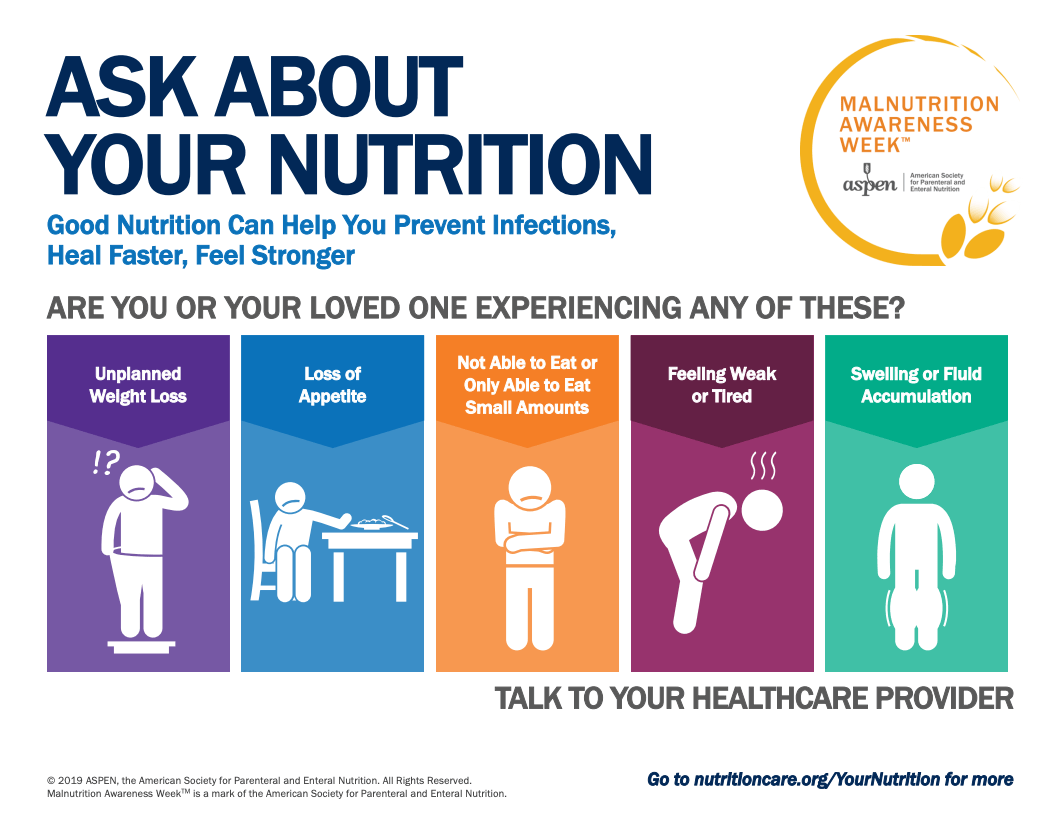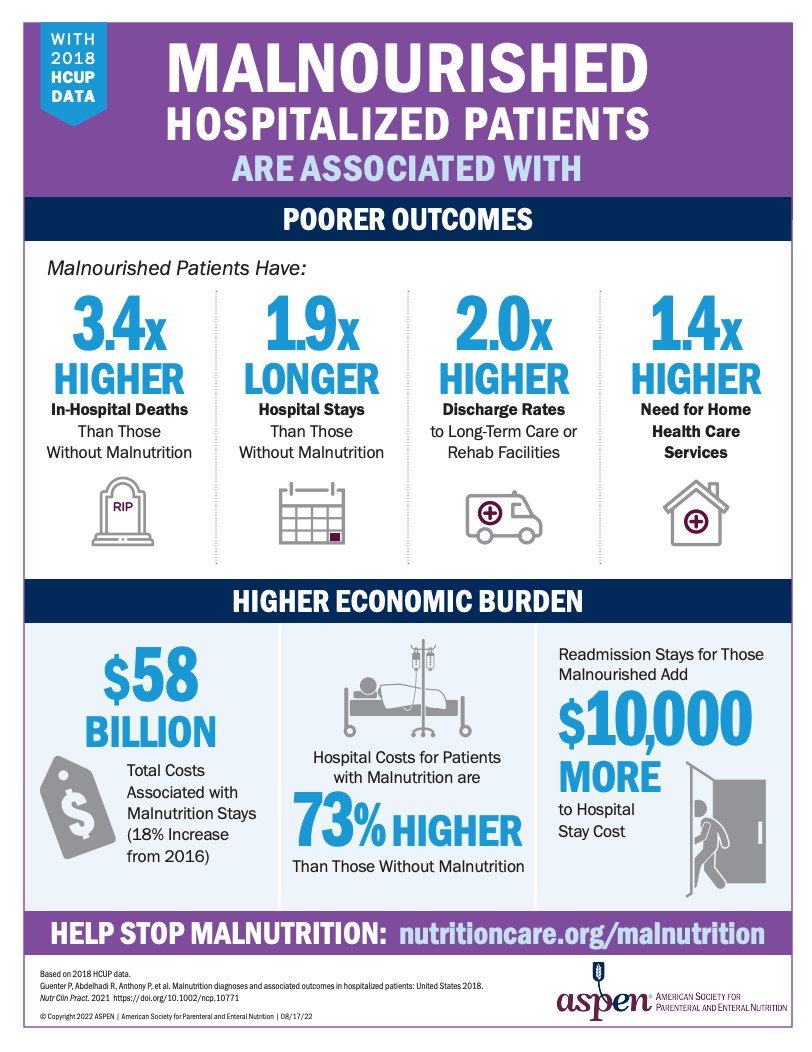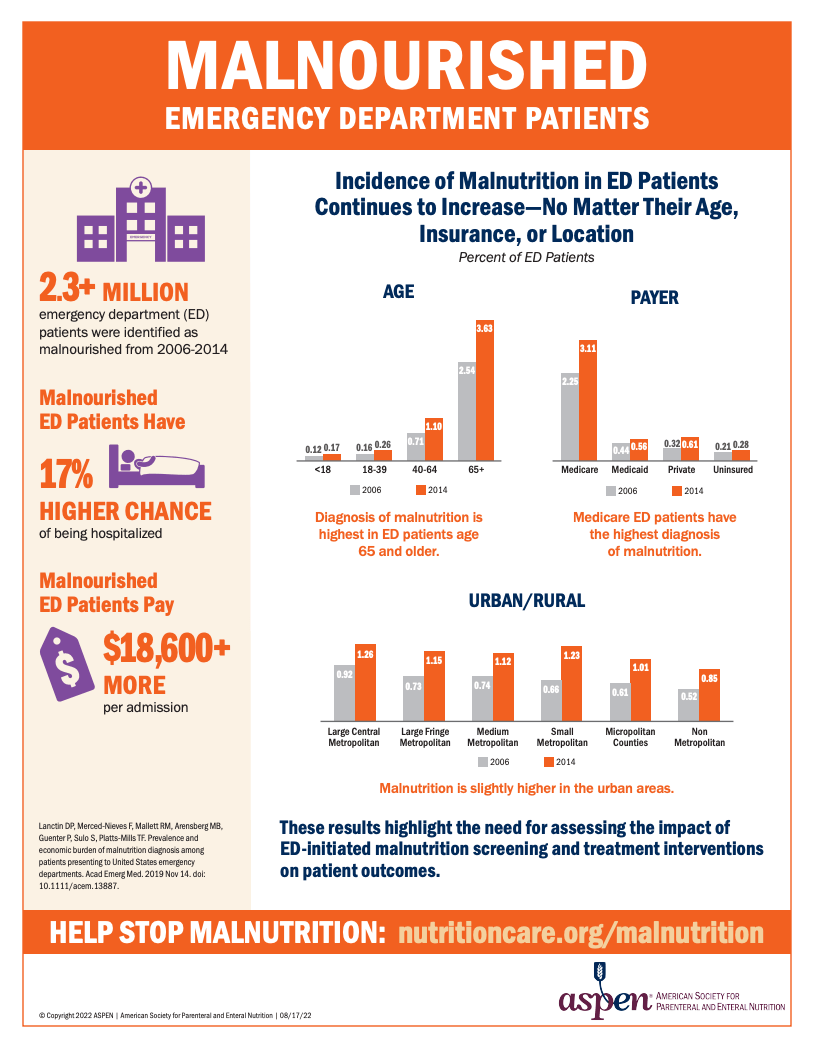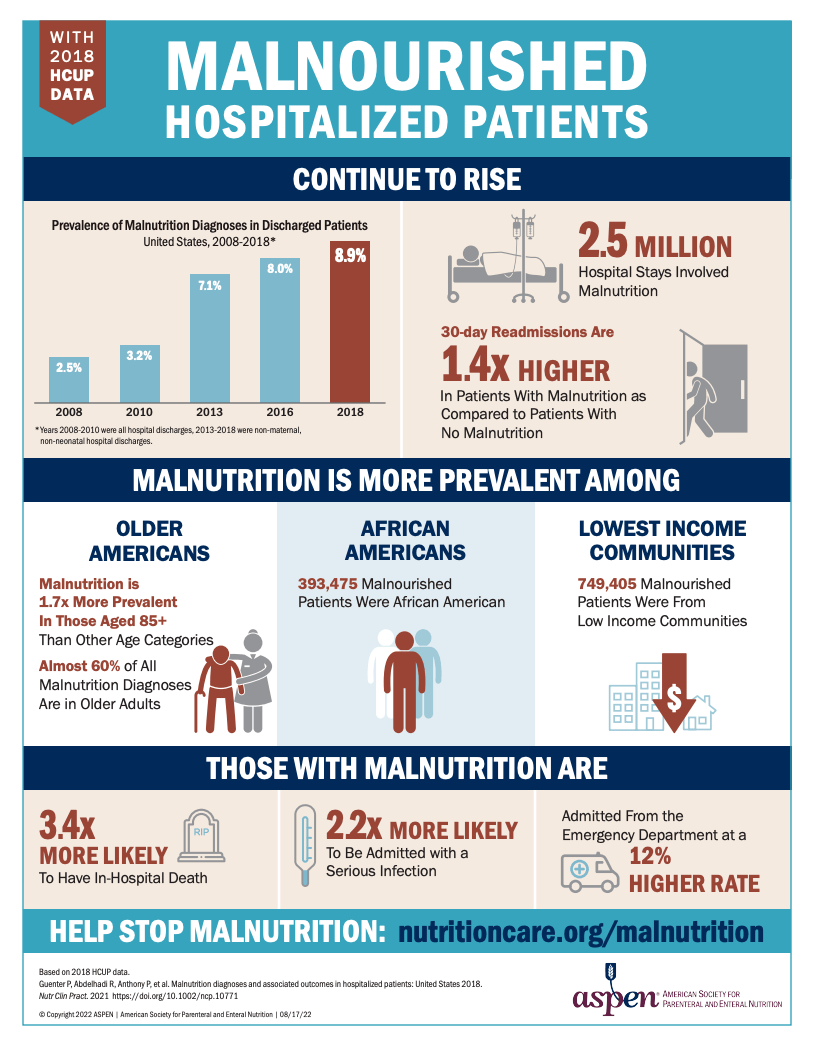Malnutrition Awareness Week: The Importance of Nutrition in Surgery
 Every September, healthcare providers across the country recognize Malnutrition Awareness Week. This year, from September 8–12, we join the American Society for Parenteral and Enteral Nutrition (ASPEN) in raising awareness about a condition that impacts millions of people — often silently.
Every September, healthcare providers across the country recognize Malnutrition Awareness Week. This year, from September 8–12, we join the American Society for Parenteral and Enteral Nutrition (ASPEN) in raising awareness about a condition that impacts millions of people — often silently.
At Suburban Surgical Care Specialists/Kane Center, we know that nutrition is not just about food — it’s about healing, strength, and recovery. For patients preparing for or recovering from general or bariatric surgery procedures, proper nutrition is one of the most important parts of the journey to better health.

What Is Malnutrition?
Malnutrition happens when the body does not get enough nutrients — such as protein, vitamins, and minerals — to function properly. It can be caused by eating too little, relying on foods with poor nutritional value, or having a medical condition that interferes with how the body uses nutrients.
Warning signs of malnutrition include:
- Unplanned weight loss
- Loss of appetite
- Eating very little or only being able to eat small amounts
- Feeling unusually weak or tired
- Swelling or fluid accumulation
These symptoms are sometimes dismissed as part of aging or recovery, but they can actually signal a serious medical issue. For surgical patients, they may also interfere with the body’s ability to heal.
Why Nutrition Matters for Surgical Patients
Surgery puts the body under stress, and healing requires energy and building blocks in the form of protein, calories, and micronutrients. Patients who are malnourished face greater risks both during and after surgery:
- Higher complication rates — Malnourished patients are more than twice as likely to be admitted with serious infections.
- Longer recovery — Studies show hospital stays are nearly twice as long for malnourished patients.
- Increased need for long-term care — Malnourished patients are 2 times more likely to be discharged to rehab or nursing facilities after hospitalization.
- Higher costs — On average, malnutrition adds more than $10,000 to the cost of a hospital stay.
For bariatric surgery patients in particular, careful nutrition planning is essential. While weight loss surgery is a powerful tool for improving health, it also requires lifelong attention to nutrient intake to prevent deficiencies.

Who Is Most at Risk?
Malnutrition can affect anyone, but certain groups are at greater risk:
- Older adults — Malnutrition is nearly twice as common in people over 85. Nearly 60% of all malnutrition diagnoses in hospitals are among older adults.
- Hospitalized patients — More than 2.5 million hospital stays each year involve malnutrition.
- Emergency department patients — Malnutrition is increasingly identified in patients presenting to the ER, putting them at greater risk of hospitalization.
- Patients from underserved communities — Malnutrition is more common among low-income households and minority populations, where access to nutritious food and consistent healthcare can be limited.
As a bariatric practice, we see how nutrition challenges can overlap with obesity, chronic illness, and surgical recovery. That’s why screening for and addressing malnutrition is part of our commitment to patient safety and long-term success.

How to Protect Yourself and Loved Ones
The good news is that malnutrition is both preventable and treatable. Here are a few steps patients and caregivers can take:
- Be aware of the warning signs. Don’t ignore unplanned weight loss, fatigue, or appetite changes.
- Talk to your healthcare team. If you’re preparing for surgery, ask about nutrition screening. At SSCS, we include nutrition as a standard part of our care plans.
- Prioritize protein and balance. Protein supports healing, while vitamins and minerals help prevent complications. After bariatric surgery, a structured eating plan and supplements are critical to staying healthy.
- Stay engaged in follow-up care. Long-term nutrition support is essential, particularly after bariatric surgery. Our team offers ongoing guidance to help patients avoid deficiencies.
Encourage loved ones to ask questions. Whether in the hospital or at home, speaking up about nutrition can make a difference.

Our Commitment to Nutrition and Surgical Excellence
At Suburban Surgical Care Specialists/Kane Center, we are proud to be recognized as a Bariatric Surgery Center of Excellence. That means we don’t just perform surgery — we support our patients through the entire process, from pre-operative preparation to long-term follow-up.
Nutrition plays a central role in that care. By identifying and addressing malnutrition early, we can reduce surgical risks, support faster recovery, and help patients achieve lasting weight loss and better health. Malnutrition Awareness Week reminds us that healing doesn’t start or stop in the operating room. It starts with ensuring that every patient has the nutrition they need to thrive.
Strengthening Health Through Nutrition
Malnutrition is sometimes called the “silent epidemic” because it is often overlooked. But the effects are real: slower healing, higher complications, longer hospital stays, and reduced quality of life.
This September, during Malnutrition Awareness Week, we encourage patients and families to ask an important question: “Am I getting the nutrition I need?”
At Suburban Surgical Care Specialists/Kane Center, we’re here to help you answer that question — and to provide the guidance and support you need to stay strong, recover well, and enjoy the benefits of better health.

